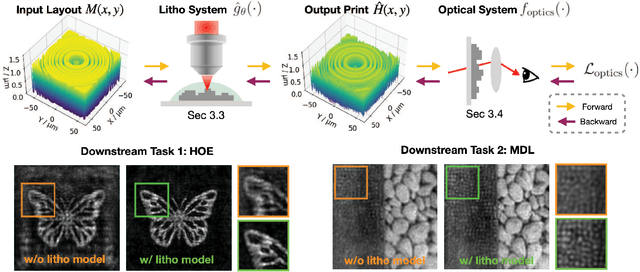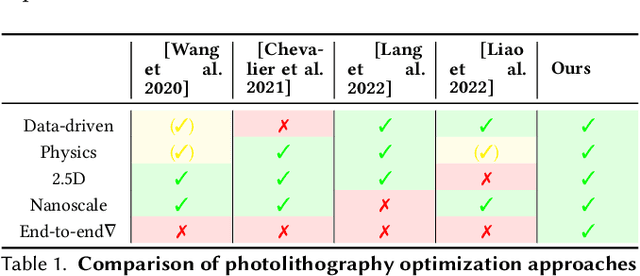Neural Lithography: Close the Design-to-Manufacturing Gap in Computational Optics with a 'Real2Sim' Learned Photolithography Simulator
Paper and Code
Sep 29, 2023



We introduce neural lithography to address the 'design-to-manufacturing' gap in computational optics. Computational optics with large design degrees of freedom enable advanced functionalities and performance beyond traditional optics. However, the existing design approaches often overlook the numerical modeling of the manufacturing process, which can result in significant performance deviation between the design and the fabricated optics. To bridge this gap, we, for the first time, propose a fully differentiable design framework that integrates a pre-trained photolithography simulator into the model-based optical design loop. Leveraging a blend of physics-informed modeling and data-driven training using experimentally collected datasets, our photolithography simulator serves as a regularizer on fabrication feasibility during design, compensating for structure discrepancies introduced in the lithography process. We demonstrate the effectiveness of our approach through two typical tasks in computational optics, where we design and fabricate a holographic optical element (HOE) and a multi-level diffractive lens (MDL) using a two-photon lithography system, showcasing improved optical performance on the task-specific metrics.
 Add to Chrome
Add to Chrome Add to Firefox
Add to Firefox Add to Edge
Add to Edge